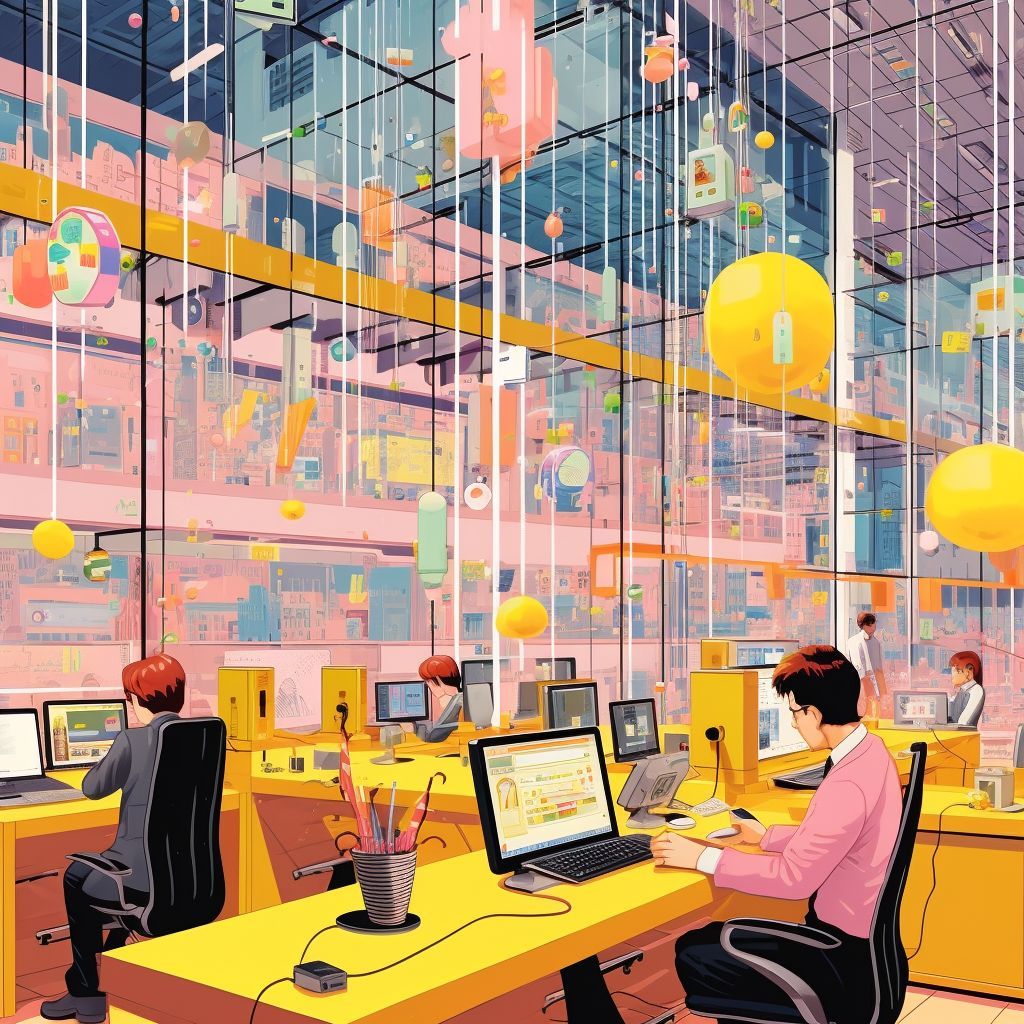

Image by Midjourney Pic: Midjourney
Editors' Note: Many Fast News images are stylised illustrations generated by Dall-E. Photorealism is not intended. View as early and evolving AI art!

AI's rise in sight,
Disrupts high-level roles, skills,
Change is in the light.

Generative AI to disrupt higher-level occupations: HR, marketing, comms, accounting, banking most affected
The Federal government-funded Future Skills Organisation (FSO) and Mandala Partners have released a report examining the impact of generative AI on skills in the workplace, predicting occupations requiring higher-level qualifications are more likely to be disrupted by generative AI.
The study outlines the impact of generative AI on finance, technology and business occupations, and the ramifications this will have on the training system in Australia. The greatest exposure to generative AI were in the Financial Services and Business Services training packages, followed by ICT. Occupations facing the greatest exposure include human resources, accounting, banking, and marketing and communications.
The report, titled 'Impact of Generative AI on Skills in the Workplace', suggests that occupations that utilise more cognitive and sensory skills will be most impacted, while those requiring physical skills will be least affected. The primary impact on the training system will be at the university level and along with VET qualifications such as graduate certificates and diplomas.
The report comes at a time when Australia is projected to have a 370,000 digital worker shortfall by 2026, according to the Growing Australia’s Digital Workforce report. This underlines the urgency of understanding and addressing the potential disruptions posed by generative AI.
"There’s no doubt that generative AI is having a significant impact on our world, including what we learn and how we train. This report is the first of its kind that examines the exposure of various training products to generative AI," said Patrick Kidd, CEO of the Future Skills Organisation.
Tom McMahon, Director at economics research consultancy Mandala Partners, said: “We know that the impact of generative AI is being felt in workplaces right now, so analysing this impact is critical as the FSO works to close Australia’s skills gap across these sectors. Roles spanning finance, technology and business, like banking, project management, accounting and software development are critical to the functioning and success of our economy. Ensuring we understand the exposure of AI in these fields will be crucial as the FSO look to close the skills gap and create a diverse and skilled workforce,”
Mr McMahon said.explained the methodology behind the report: "To determine the impact on Australia’s training system, and in particular VET, we mapped estimates of the impact on the human abilities that form the fundamental building blocks of tasks, skills and occupations. This allowed us to estimate the impacts at the occupation, qualification and unit of competency level."
The report comes at a time when Australia is projected to have a 370,000 digital worker shortfall by 2026, according to the Growing Australia’s Digital Workforce report. This underlines the urgency of understanding and addressing the potential disruptions posed by generative AI.
The Future Skills Organisation is a Jobs and Skills Council funded by the Australian Government Department of Employment and Workplace Relations. Mandala Partners specialises in using economics, data and strategy to provide analysis, insights and advice to governments, businesses and organisations.










